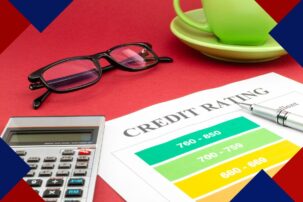Personal Loans

When it comes to managing your finances, personal loans are a versatile tool that can provide you with the financial support you need.
Whether it’s funding a home improvement project, consolidating your debts, or covering unexpected expenses, personal loans offer a flexible solution.
In this comprehensive guide, we will break down what personal loans are, how they work, and everything you need to know to make an informed decision.
What is a Personal Loan?
A personal loan is a type of unsecured loan that allows you to borrow money from a financial institution, such as a bank or online lender, for various personal expenses.
Unlike secured loans, which require collateral like your home or car, personal loans are unsecured. This means you don’t need to pledge any assets to secure the loan.
Instead, your eligibility and interest rate are determined by factors such as your credit score, income, and financial history.
How Does a Personal Loan Work
Understanding how personal loans work is crucial before applying for one. Here’s a simplified breakdown of the process:
- Loan Application: To get started, you’ll need to apply for a personal loan. You can do this through traditional brick-and-mortar banks or online lenders. The application typically requires personal and financial information, including your income, employment history, and credit score.
- Loan Approval: Once your application is submitted, the lender will review your information. They’ll assess your creditworthiness and financial stability to determine whether to approve your loan. A higher credit score and a steady income increase your chances of approval.
- Loan Terms: If your application is approved, you’ll receive a loan offer that outlines the terms of the loan. This includes the loan amount, interest rate, repayment term, and monthly payment amount. Review these terms carefully before accepting the loan.
- Funds Disbursement: After accepting the loan offer, the lender will disburse the funds to your bank account. You can use the money for various purposes, such as debt consolidation, home improvements, medical expenses, or any other personal financial need.
- Repayment: You’ll be required to repay the loan in fixed monthly installments over the agreed-upon term. The interest rate and loan term will determine the total cost of the loan.
What Can I Use a Personal Loan For?
Personal loans are incredibly versatile and can be used for a wide range of purposes, including:
- Debt Consolidation: If you have multiple high-interest debts, such as credit card balances, you can use a personal loan to consolidate them into a single, more manageable monthly payment with a lower interest rate.
- Home Improvements: Personal loans can finance home renovation projects, allowing you to enhance the value and comfort of your home.
- Emergency Expenses: When unexpected medical bills, car repairs, or other emergencies arise, a personal loan can help you cover the costs quickly.
- Education: Whether you’re pursuing higher education or want to invest in career development, personal loans can help you pay for tuition and related expenses.
- Travel: Fulfill your wanderlust by using a personal loan to fund your dream vacation or travel experiences.
- Weddings: Personal loans can be a convenient way to cover the expenses associated with your special day.
- Business Startup: Entrepreneurs can use personal loans to kickstart their business ventures when traditional business loans are unavailable.
How to Get the Best Personal Loan
Getting the best personal loan for your needs involves careful research and consideration. Here are some steps to help you find the ideal loan:
- Assess Your Financial Situation: Before applying for a personal loan, take a close look at your financial situation. Calculate how much you need to borrow and determine your ability to make regular monthly payments. This self-assessment will help you avoid taking on more debt than you can comfortably manage.
- Check Your Credit Score: Your credit score plays a significant role in the interest rate you’ll receive. Obtain a copy of your credit report and check for errors. If your credit score is less than stellar, consider taking steps to improve it before applying for a loan.
- Compare Lenders: Shop around and compare loan offers from multiple lenders. This includes traditional banks, credit unions, and online lenders. Each lender may have different eligibility criteria, interest rates, and loan terms.
- Understand the Costs: Carefully review the interest rate, APR (Annual Percentage Rate), and any fees associated with the loan. The APR provides a more comprehensive view of the total cost of the loan, including interest and fees.
- Read the Fine Print: Thoroughly read the loan agreement to understand the terms and conditions. Pay attention to repayment schedules, prepayment penalties, and any clauses that may affect your loan experience.
- Consider Online Lenders: Online lenders often offer competitive rates and a streamlined application process. They can be a convenient option for borrowers who prefer to manage their finances digitally.
- Avoid Predatory Lenders: Be cautious of lenders who promise guaranteed approval or charge exorbitant interest rates. These are often red flags for predatory lending practices.
- Seek Preapproval: Getting preapproved for a personal loan can provide a clearer picture of the loan terms you’re eligible for, helping you make an informed decision.
Personal Loan Requirements
While personal loan requirements can vary from lender to lender, here are some common eligibility criteria:
- Good Credit Score: Most lenders prefer borrowers with a credit score of 650 or higher. A higher credit score can result in better loan terms.
- Steady Income: Lenders want to ensure that you have a stable source of income to repay the loan. A minimum income threshold may apply.
- Age: You must typically be at least 18 years old to apply for a personal loan.
- US Citizenship or Residency: Lenders often require borrowers to be U.S. citizens or permanent residents.
- Valid Bank Account: You’ll need an active bank account to receive the loan funds and make payments.
- Low Debt-to-Income Ratio: Lenders assess your ability to manage additional debt by looking at your debt-to-income ratio.
Remember that meeting these requirements doesn’t guarantee approval, but it does increase your chances.
Is a Personal Loan Worthy?
Determining whether a personal loan is a worthy financial move depends on your individual circumstances and needs. Here are some scenarios in which a personal loan can be a wise choice:
- Debt Consolidation: If you have high-interest debts, such as credit card balances, consolidating them with a personal loan at a lower interest rate can save you money on interest payments and simplify your finances.
- Home Improvement: Using a personal loan for home renovations can increase your property’s value and enhance your living space, making it a smart investment.
- Emergency Expenses: When faced with unexpected medical bills or car repairs, a personal loan can provide the financial relief you need to address the situation promptly.
- Lower Interest Rates: If you can secure a personal loan with a lower interest rate than your existing debts, you can save money over time and pay off your debts faster.
On the other hand, a personal loan may not be the best choice if:
- You can’t afford the monthly payments.
- You’re using it for non-essential expenses that could wait.
- You have access to lower-interest financing options, such as a home equity loan or a 0% APR credit card.
Before taking out a personal loan, carefully evaluate your financial situation, compare loan offers, and consider the long-term impact on your finances.
Frequently Asked Questions (FAQ)
Q1: What are the interest rates for personal loans?
A1: Interest rates for personal loans can vary widely depending on your credit score, the lender, and the loan amount. On average, interest rates can range from 5% to 36%. Borrowers with excellent credit scores tend to qualify for lower rates, while those with lower credit scores may face higher rates.
Q2: How does my credit score affect my personal loan application?
A2: Your credit score is a critical factor in determining your eligibility and the interest rate you’ll receive. A higher credit score generally results in lower interest rates and better loan terms. Lenders use your credit score to assess your creditworthiness and the risk of lending to you.
Q3: Can I get a personal loan with bad credit?
A3: While it’s possible to get a personal loan with bad credit, it may be more challenging, and you may face higher interest rates. Some lenders specialize in loans for borrowers with less-than-perfect credit, but it’s essential to be cautious of predatory lenders who may charge excessive fees.
Q4: How long does it take to get approved for a personal loan?
A4: The time it takes to get approved for a personal loan can vary depending on the lender and your individual circumstances. Some online lenders offer fast approval and funding within a day, while traditional banks may take several days or even weeks to process your application.
Q5: Can I pay off a personal loan early without penalties?
A5: Many personal loans allow you to make early payments or pay off the loan ahead of schedule without incurring prepayment penalties. However, it’s essential to review your loan agreement to confirm whether there are any such penalties in your specific case.
In conclusion, personal loans can be a valuable financial tool when used wisely. By understanding how they work, comparing lenders, and assessing your own financial situation, you can make informed decisions to achieve your financial goals. Remember that responsible borrowing and timely repayments are crucial to maintaining a positive credit history and financial stability.
Discover other credit cards in our website, like the How to apply to Citi Costco Anywhere Visa Credit Card
Related content

Student loan forgiveness: how to qualify and apply for debt relief

Student Loan: complete guide to understanding, applying, and managing your education loans

Loans for Bad Credit
Loans for Bad Credit

How to Negotiate a Loan
